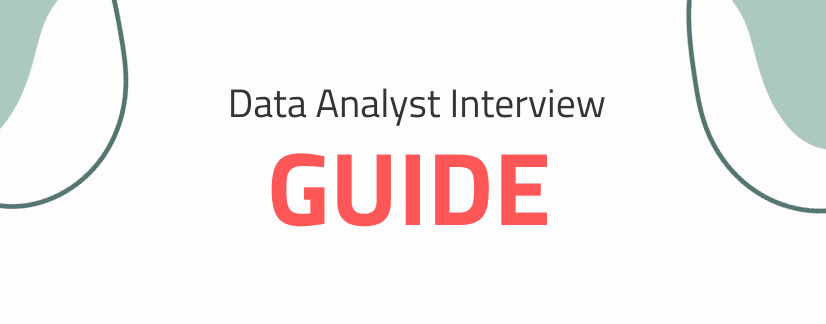When interviewing for a Data Analyst role as a fresher, you’ll likely encounter questions that focus on your understanding of data analysis concepts, technical skills, and problem-solving abilities. Here’s a comprehensive list of commonly asked interview questions:
- General and Behavioral Questions
• Tell me about yourself.
• Why do you want to become a Data Analyst?
• What do you know about our company and why do you want to work here?
• Describe a time when you solved a problem using data.
• How do you prioritize tasks and manage deadlines?
• Tell me about a time when you worked in a team to complete a project.
- Technical Questions
• What are the different types of joins in SQL? (Expect variations of SQL questions)
• How would you handle missing or inconsistent data?
• What is normalization? Why is it important?
• Explain the difference between primary keys and foreign keys in a database.
• What are the most common data types in SQL?
• How do you perform data cleaning in Excel?
- Analytical Skills and Problem-Solving
• How would you find outliers in a dataset?
• How would you approach analyzing a dataset with 1 million rows?
• If given two datasets, how would you combine them?
• What steps would you take if your results didn’t match stakeholders’ expectations?
• How would you identify trends or patterns in a dataset?
- Excel-Related Questions
• What are pivot tables and how do you use them?
• Explain VLOOKUP and HLOOKUP.
• How would you handle large datasets in Excel?
• What is the use of conditional formatting?
• How would you create a dashboard in Excel?
• How can you create a custom formula in Excel?
- SQL Questions
• Write a SQL query to find the second highest salary in a table.
• What is the difference between WHERE and HAVING clauses?
• How would you optimize a slow-running query?
• What is the difference between UNION and UNION ALL?
• What is a subquery, and when would you use it?
- Statistics and Data Analysis
• Explain the difference between mean, median, and mode.
• What is standard deviation, and why is it important?
• What is regression analysis? Can you explain linear regression?
• What is correlation, and how is it different from causation?
• What are some key metrics you would track for a marketing campaign?
- Data Visualization and Tools
• What tools have you used for data visualization?
• Explain a situation where you used charts to tell a story.
• What is your experience with tools like Tableau or Power BI?
• How would you decide which chart type to use for visualizing data?
• Have you ever created a dashboard? If yes, what were the key features?
- Python/R (If mentioned on your resume)
• What libraries do you use in Python for data analysis?
• How would you import a dataset and perform basic analysis in Python?
• What are some common data manipulation functions in pandas?
• How do you handle missing values in Python?
- Scenario-Based Questions
• Imagine you are given a dataset of customer purchases; how would you segment the customers?
• You are given sales data for the past five years. What steps would you take to forecast the next year’s sales?
• If you find conflicting data in a report, how would you handle the situation?
• Describe a project where you identified key insights using data.
- Aptitude or Logical Questions
• Some companies also include questions testing your quantitative aptitude, logical reasoning, and pattern recognition to gauge problem-solving skills.
Tips to Prepare:
1. Strengthen your Basics: Brush up on SQL, Excel, and statistical concepts.
2. Mock Interviews: Practice explaining your thought process for data problems.
3. Projects: Be ready to discuss any projects or internships you’ve done.
4. Stay Current: Read about trends in data analysis and business intelligence.
Being prepared for these questions can help you navigate most interview scenarios confidently as a fresher!
